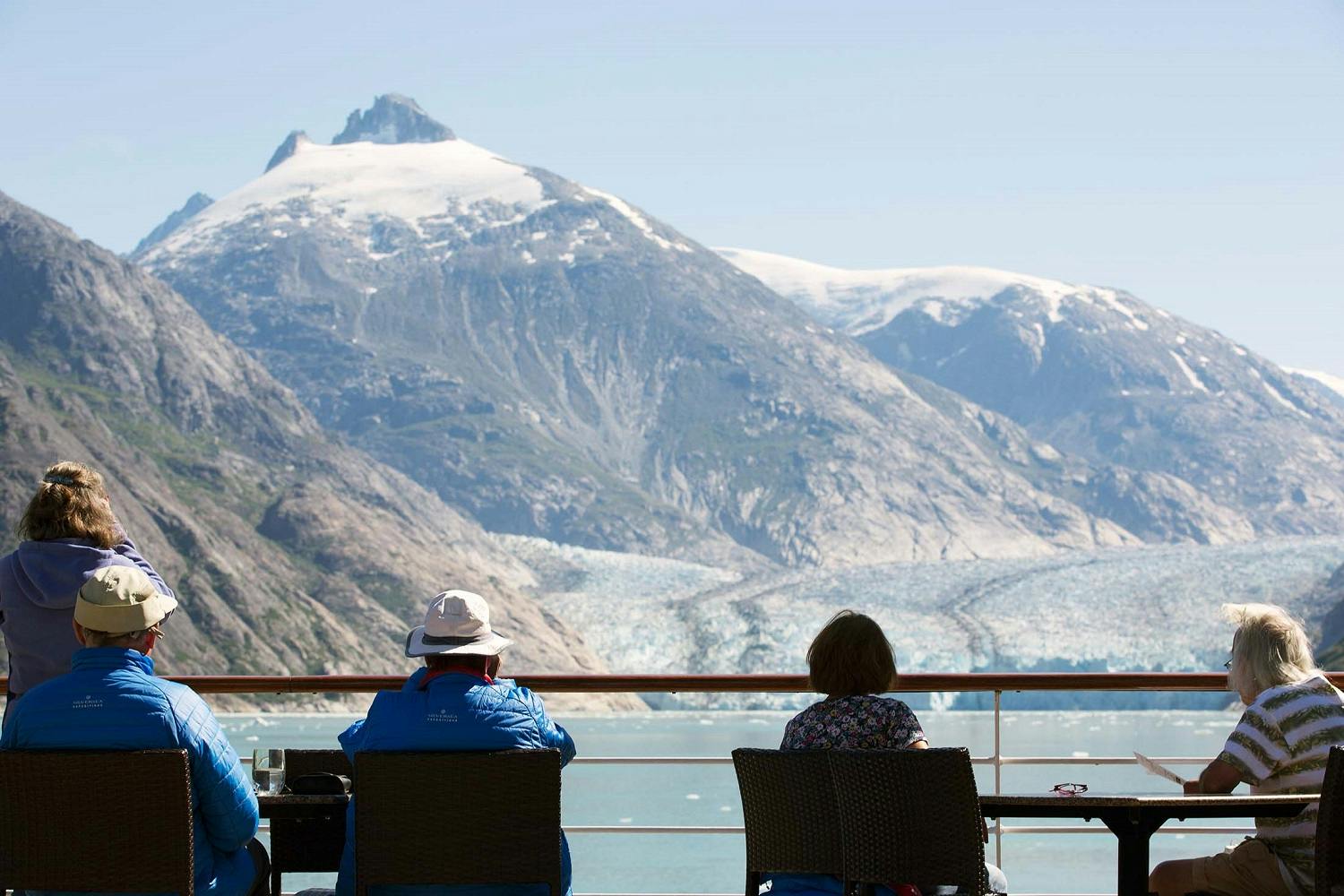Marveling at Magnificent Glaciers in Alaska by Sea, Land and Air
Tidewater glaciers are magnificent under any conditions. Once you see one up close, however, you’ll understand that even the most spectacular pictures and videos can’t do them justice. There’s something about these immense walls of ice, enthroned where land meets sea, that can only be captured by a personal visit. With an estimated 100,000 glaciers in Alaska, the Last Frontier is one of the best places in the world to experience these natural wonders.
Into the fjords, Alaska’s wilderness

Your journey starts not at the face of the glacier, but when your ship makes its first turn to enter the glacier fjord. It’s an alternate universe that was chiseled into existence by the ice itself. Over time, snow compacts into crystalline ice. Then, gravity grinds the ice ever so slowly out of the mountains and into the sea, and the sheets of ice are constantly layered. Even as the glaciers are flowing downhill in matters of inches and feet per year, their faces are also melting and breaking apart in a process called calving.
“I always tell people to open their curtains as soon as they wake up during an Alaska cruise,” says Dai Mar Tamarack, an Expedition Team member with Silversea Cruises who leads guests on Alaska glacier tours. You never know what you’ll see outside the window as your ship makes its pilgrimage into the fjord, sailing to meet the miniature ice age that still lurks at its head.
The fjords leading to some of Tamarack’s favorite glaciers — the Sawyer and the Dawes, both located deep in the Tracy Arm-Fords Terror Wilderness — can be more than 20 miles (32 kilometers) long. Their remoteness makes them an extraordinary place to visit by sea. “These ultra-protected areas are placed where man is just a visitor. There are no human-made structures or roads to ruin the wilderness experience,” he says. “Unless you are catching a view of these glaciers out of your plane window, a ship is the only way to see it.”
And then, as the ship slowly rounds the last corner of the fjords, the glacier comes into view. Surrounded by skirts of water and floating icebergs, the wall of ice that forms the glacier’s face can stretch for miles and be hundreds of feet high. That sheer size is one of the biggest surprises guests enjoy — realizing that even though the ice seems to dominate the horizon, you’re still miles away from it.
Approaching the thundering awe by Zodiac
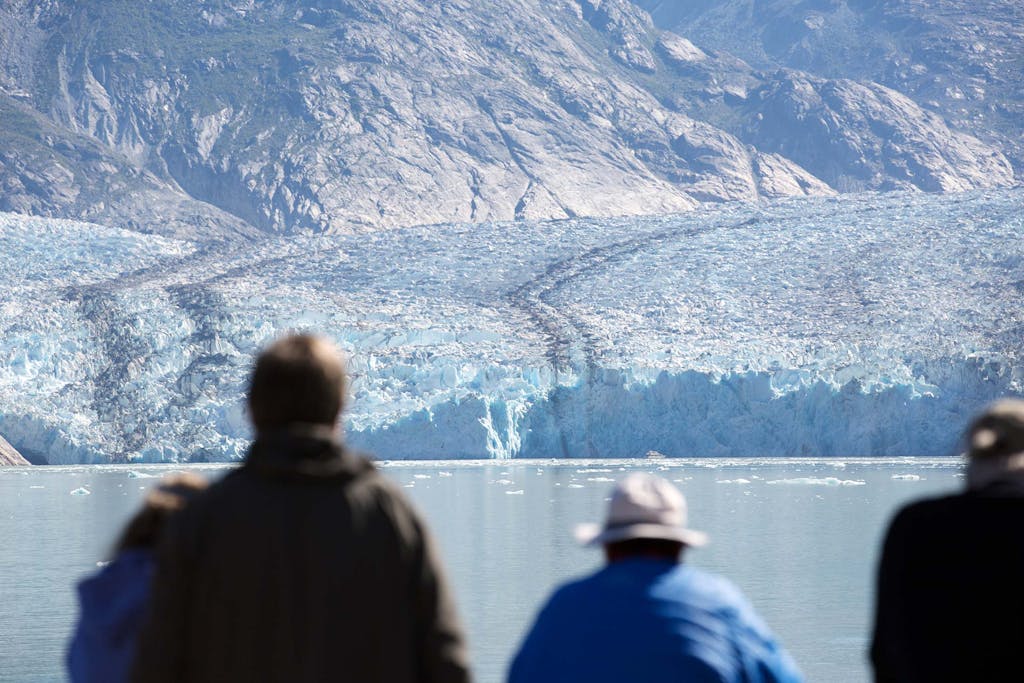
Once the cruise ship has approached as close as it safely can, you have the option of climbing into a Zodiac for a more immersive experience. Sometimes you can even get near enough to hear the ice cracking and moaning under its own weight. The ride is fast and exhilarating, but stable — making glacier Zodiac tours in Alaska the perfect method for witnessing these towering sheets of ice.
You won’t be able to get out and walk on the glacier. The same characteristics that make for such exciting viewing from the water also mean tidewater glaciers are very dangerous to walk on. But if you’re willing to wait a bit in the Zodiac, you’ll be perfectly positioned should a big moment arrive. Sometimes a ship-sized chunk of ice loses its grip on the glacier’s face and falls into the sea, flinging house-sized fragments in its wake.
But sometimes, that’s not what happens at all. Glaciers in Alaska can also calve or break apart underwater, leaving the ice floes to rise like a surfacing submarine. These are called shooters, and they always come as a surprise. Nevertheless, strict regulations and routine safety precautions mean that Zodiacs always remain at entirely safe distances.
Tamarack relates an unforgettable moment he witnessed at the Dawes Glacier. “We had seen a couple of smaller calvings but were resigned to the fact that we might not get a big one,” he says. “Then with absolutely no warning, a huge, apartment-sized piece of ice bursts up from below. It just kept rising and rising. The amount of water cascading off this shooter looked like something out of a Michael Bay film. The scene was just too massive to understand completely. It kept rising, and kept rising, before tipping and crashing back down almost in slow motion.”
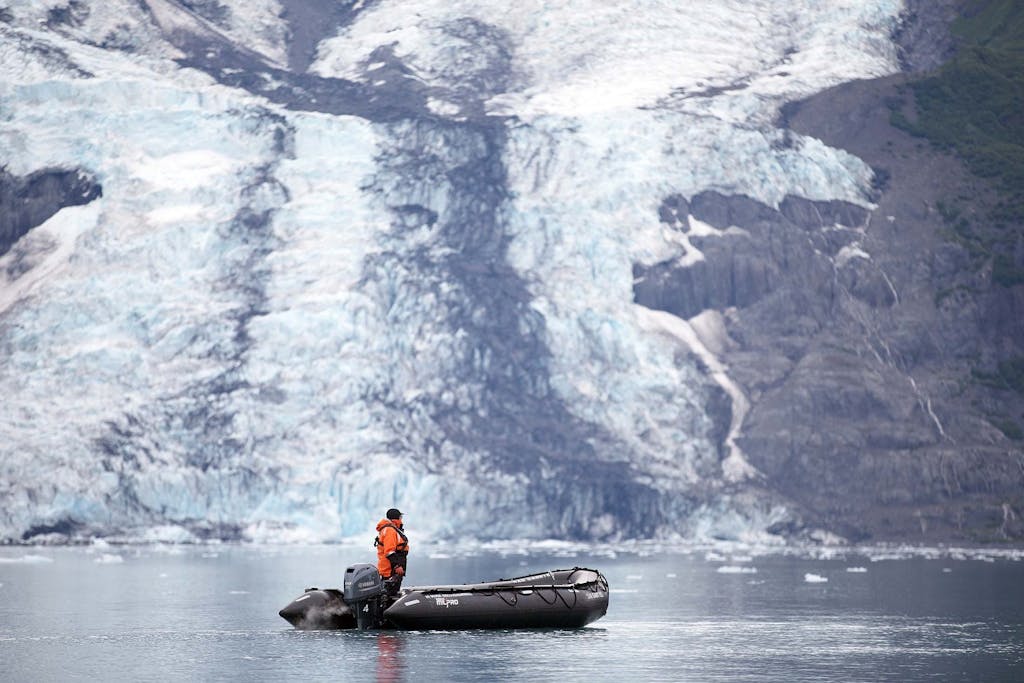
Glaciers may seem eternal, but they are always changing. Nowadays, that change is happening fast enough for regular visitors like Tamarack to see the difference year by year. “Every year, when I first make it back to these glaciers, I am shocked to see how far the face has receded,” he says. “Every year, the trip is a little farther, more of the mountainside is exposed.”
Like it or not, there will be a time when these massive sheets of ice tuck back into the mountains and disappear from the shorelines. But you can still see them now on an Alaska glacier tour. And if you don’t relish the surprisingly physical adventure of taking glacier Zodiac tours in Alaska, you have some other options.
A bird’s-eye perspective
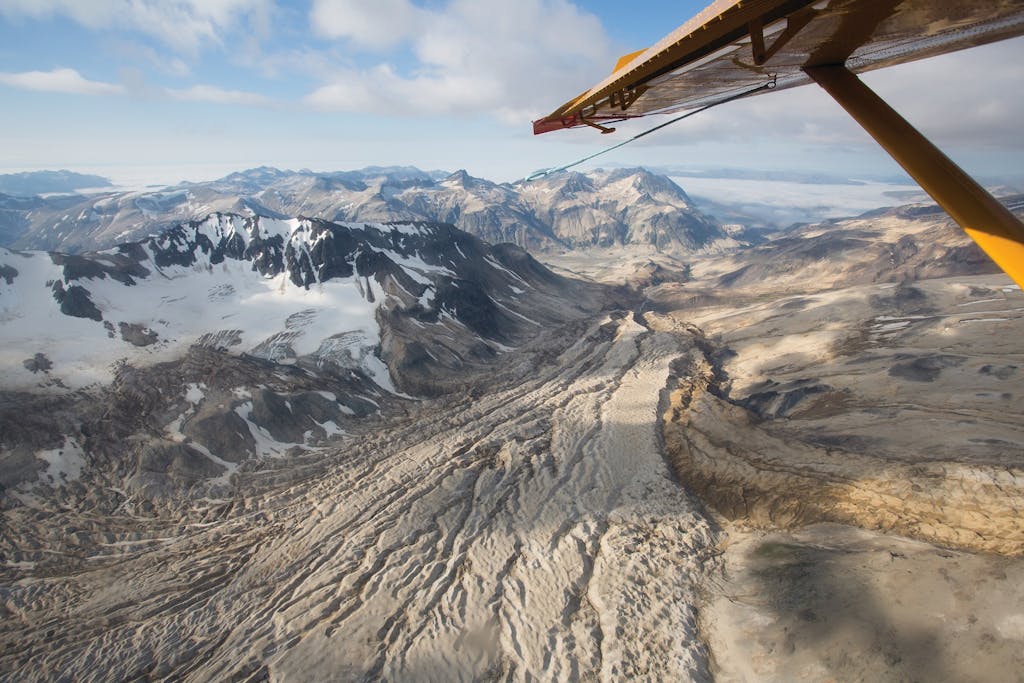
One such way is by boarding a small plane for a bird’s eye view that shows how glaciers are actually rivers of ice, coursing out of the giant ice fields that serve as their headwaters. Taking an Alaska flightseeing tour offers a unique perspective on Alaska, exposing the vastness of the landscape beneath and enabling travelers to understand just how remote this region is. From the sky, one can witness the entire fjord, including the full body of the glacier.
Traveling the ice on foot
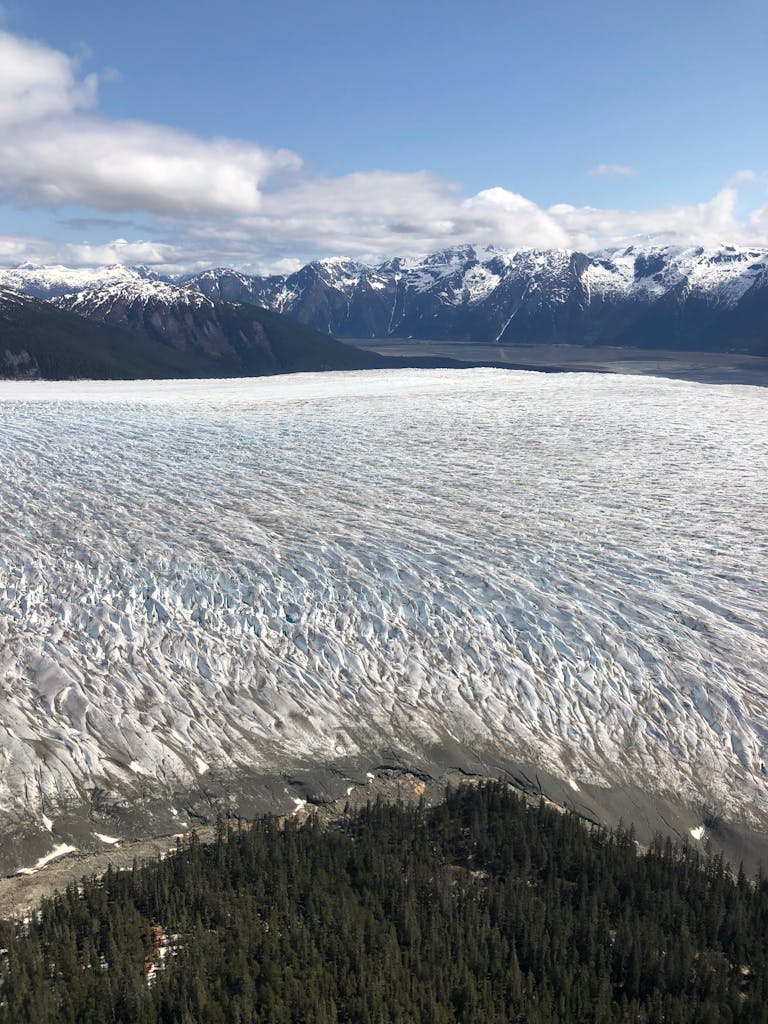
Another sightseeing option is taking a land-based glacier viewing tour — the Mendenhall Glacier is a particular favorite when you’re at port in Juneau. If you’ve always wanted to take one of the exciting Alaska glacier hiking tours, the Mendenhall is one of the best places to do so thanks to the inland location and relatively stable nature.
You’ll have to work for the adventure, paddling a kayak across the lake or hiking several miles on challenging trail to reach the ice. Then you can follow your guide out onto the ice past towering blocks of ice, fathomless pools of deep blue water and, sometimes, dramatic moulins — massive, near-vertical tunnels carved into the glacier by flowing water.
If you’d prefer a gentler approach, you can view the glacier from a comfortable indoor visitor center or stroll outside trails to spectacular lookout points over the ice. You can even walk down to the lake that fronts the glacier and dip your fingers in its frigid meltwater. Or make the relatively gentle one-mile trek out to Nugget Falls, a towering cascade of water that tumbles down a rock face beside the glacier. No matter how you reach the ice in Alaska, your mission is simple: Go now. It’s always worth the journey.
Ready to experience glaciers in Alaska? Silversea’s Alaska cruises explore the 49th State from May to September.
